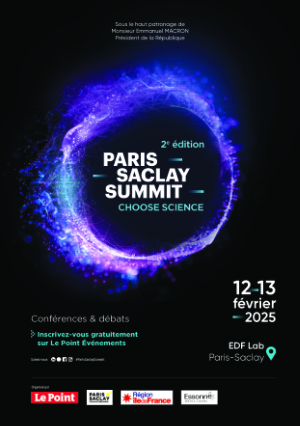SD-25192 PHD CANDIDATE THEORETICAL INVESTIGATION OF WATER SPLITTING ON FERROELECTRIC SURFACES
| ABG-127356 | Sujet de Thèse | |
| 03/12/2024 | Financement public/privé |
- Physique
- Physique
Description du sujet
36 months (14+22) contract | Fulltime/40h | Belval
Are you passionate about research? So are we! Come and join us
The Luxembourg Institute of Science and Technology (LIST) is a Research and Technology Organization (RTO) active in the fields of materials, environment and IT. By transforming scientific knowledge into technologies, smart data and tools, LIST empowers citizens in their choices, public authorities in their decisions and businesses in their strategies.
Do you want to know more about LIST? Check our website: https://www.list.lu/
How will you contribute?
Hydrogen-powered fuel cells constitute one of the most promising alternatives to cover society’s energy needs in a green and sustainable way. In particular, the roadmap for the implementation of a “hydrogen economy” in Europe proposes the goal that 24% of the total energy demand be covered by hydrogen in 2050, which constitutes a major scientific, technological, and infrastructural challenge. Indeed, for example, for hydrogen-powered machines (e.g., trucks, planes) to be eco-friendly, we need to improve our ability to produce, store and distribute hydrogen in a non-polluting way. As regards hydrogen production, the most obvious possibility is to obtain it from water; indeed, there is a massive worldwide effort focused on improving photo-catalytic water splitting.
In this context, it has been observed in recent years that ferroelectric materials – which present a spontaneous and switchable electric polarization – offer a very promising platform for water splitting. More precisely, it has been observed that the photo-catalyzed breaking of H2O molecules is particularly efficient on the surface of ferroelectric and related compounds. This offers great hope for optimization, as there is a very good fundamental understanding of ferroelectrics and a lot of knowledge about how to modify their functional and dynamical properties. However, despite a growing amount of work in the field, the specific reasons why ferroelectric surfaces perform well for water splitting are not clear yet. Is it because of the natural tendency of a ferroelectric to drag/expel electric charges to screen its spontaneous polarization? Is it because of the bulk photovoltaic effect that is exclusive of polar compounds, which may facilitate a greater availability of photo-generated carriers to aid the chemical reaction? There is a pressing need to address these questions and eventually (or simultaneously) explore the full potential that ferroelectrics may offer as regards catalysis optimization.
Quantum simulation based on efficient schemes like density functional theory – increasingly coupled with modern machine-learning techniques – has been critical to our current understanding of ferroelectrics, featuring a long list of important predictions that were later confirmed experimentally. These methods also offer a very reliable approach to qualitative and quasi-quantitative studies of chemical reactions on surfaces. Hence, in this project we will use quantum-mechanical simulation to address the above-mentioned questions about water splitting on ferroelectrics. For example, we will study model ferroelectric materials and surfaces – both in idealized conditions and for realistic temperatures and water coverage levels – to identify the main factors affecting the interaction with H2O molecules and their eventual splitting. Once the critical ingredients are identified, we will propose modified ferroelectric compounds that should display an enhanced performance and use simulations to verify our hypotheses. We will be in contact with experimental LIST groups working on ferroelectrics and water splitting to potentially verify our most promising predictions.
The research will be supervised by Prof. Jorge Íñiguez-González , whose work can be consulted in Google Scholar
Prise de fonction :
Nature du financement
Précisions sur le financement
Présentation établissement et labo d'accueil
The Luxembourg Institute of Science and Technology (LIST) is a Research and Technology Organization (RTO) active in the fields of materials, environment and IT. By transforming scientific knowledge into technologies, smart data and tools, LIST empowers citizens in their choices, public authorities in their decisions and businesses in their strategies.
Site web :
Intitulé du doctorat
Pays d'obtention du doctorat
Etablissement délivrant le doctorat
Profil du candidat
Is Your profile described below? Are you our future colleague? Apply now!
You hold a master’s degree in Materials Science, Condensed Matter Physics or related discipline.
You have a good understanding of first-principles quantum simulation methods, e.g. based on density functional theory.
Fluency in spoken and written English is a must. So, you’re the one we’re looking for!
Vous avez déjà un compte ?
Nouvel utilisateur ?
Vous souhaitez recevoir nos infolettres ?
Découvrez nos adhérents
 MabDesign
MabDesign  Tecknowmetrix
Tecknowmetrix  ADEME
ADEME  Laboratoire National de Métrologie et d'Essais - LNE
Laboratoire National de Métrologie et d'Essais - LNE  PhDOOC
PhDOOC  Groupe AFNOR - Association française de normalisation
Groupe AFNOR - Association française de normalisation  Nokia Bell Labs France
Nokia Bell Labs France  Ifremer
Ifremer  TotalEnergies
TotalEnergies  MabDesign
MabDesign  ONERA - The French Aerospace Lab
ONERA - The French Aerospace Lab  ANRT
ANRT  CESI
CESI  Généthon
Généthon  SUEZ
SUEZ  CASDEN
CASDEN  Aérocentre, Pôle d'excellence régional
Aérocentre, Pôle d'excellence régional  Institut de Radioprotection et de Sureté Nucléaire - IRSN - Siège
Institut de Radioprotection et de Sureté Nucléaire - IRSN - Siège  Institut Sup'biotech de Paris
Institut Sup'biotech de Paris




